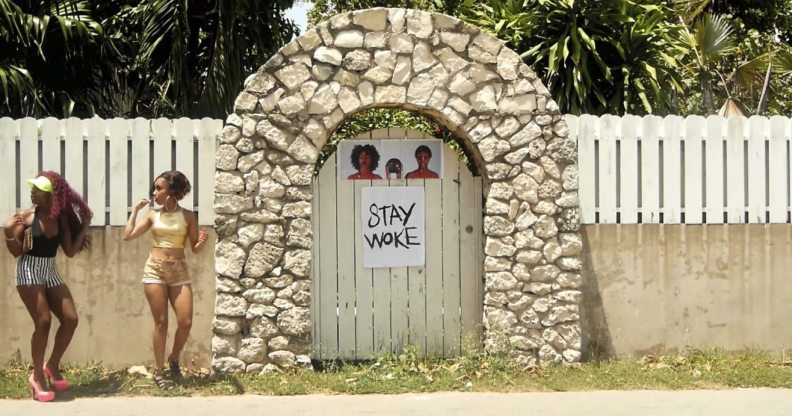What does ‘woke’ mean? The dictionary definition and where it came from

When did you last hear the word “woke”? Did you read it in a mud-slinging match on Twitter, in a column in a national newspaper, or overhear someone passing the woke baton around in a bar or a cafe?
People throw the word around a lot without really understanding it’s meaning or what it means to be “woke” or “stay woke”. The term “woke” is meant to signify a shift in social awareness.
Thanks to the fight of activists such as Black Lives Matter, society is starting to recognise that not everyone is a straight, white, middle-class male born with privilege, and lives in a world that works in their favour.
But with a word like “woke”, what exactly does using it mean? And is it more appropriate for some people to use the term than others?
Where did the term come from?
“Woke” is a political term of black origin which refers to a perceived awareness of issues concerning social justice and racial justice.
Outside of its use in popular culture, “woke” has been in use in African American culture since the 1900s.
Derived from the African American Vernacular English, or AAVE expression “stay woke”, the term stems from the racial and social injustices African American people have experienced in the US.
The word was said to come into popular vernacular with Erykah Badu’s 2008 song Master Teacher.
“Even if yo baby ain’t got no money/To support ya baby, you/(I stay woke)/Even when the preacher tell you some lies/And cheatin on ya mama, you stay woke/(I stay woke)/Even though you go through struggle and strife.
To keep a healthy life, I stay woke/(I stay woke)/Everybody knows a black or a white there’s creatures in every shape and size,” sings Badu in the song.
Following the death of Trayvon Martin – an unarmed 17-year-old who was fatally shot by neighbourhood watch volunteer George Zimmerman in February 2012 – the Black Lives Matter movement has been linked to the rising popularity of the word “woke”.
In 2015 the phrase was referenced again by Afro-Futurism duo OSHUN’s track Stay Woke.
What does it mean?
“Woke” bagged a mention in the Oxford English Dictionary in August 2017 and according to the OED it’s defined as “originally: well-informed, up-to-date. Now chiefly: alert to racial or social discrimination and injustice”.
The word, which stems from black culture, is used to determine whether or not someone is socially aware of the privilege and inequalities that affect people of colour today.
In the UK alone, racial discrimination has resulted in a deluge of racist hate crimes, disparate educational opportunities through to stop and search, a police procedure which sees eight times more people of colour than white people stopped on grounds of suspicion that they have committed a crime.
However, if we look to Urban Dictionary for a definition of “woke” we might gain a clearer understanding of how day-to-day people actually use the word.
Urban Dictionary defines “woke” as “a state of perceived intellectual superiority one gains by reading The Huffington Post.” Used in a sentence? “Ali is so woke. At brunch she explained how wearing anything other than Chuck Taylor’s or Tom’s is really a microaggression. Hey did you get your Amy Schumer tickets yet?”
Whether it’s the mudslinging catch-all terms of “woke bae” or a “wokeometer”, the use of the term is fading into parody.
Why should we think about how we use the word?
Since the word is being capitalised by the people it seeks to criticise, should white people be using the term to mock people who are trying to fight against racial and social injustice?
“The conundrum is built in. When white people aspire to get points for consciousness, they walk right into the crosshairs between allyship and appropriation,” wrote Amanda Hess in the New York Times Magazine.
Rather than using the term woke for white people to pat themselves on the back, perhaps an awareness of what woke really means will draw awareness to its cause as a whole: the shifting popularisation of the term by white people, rather than people of colour, indicates that the Western world has a problem with the way it understands racial injustice.

